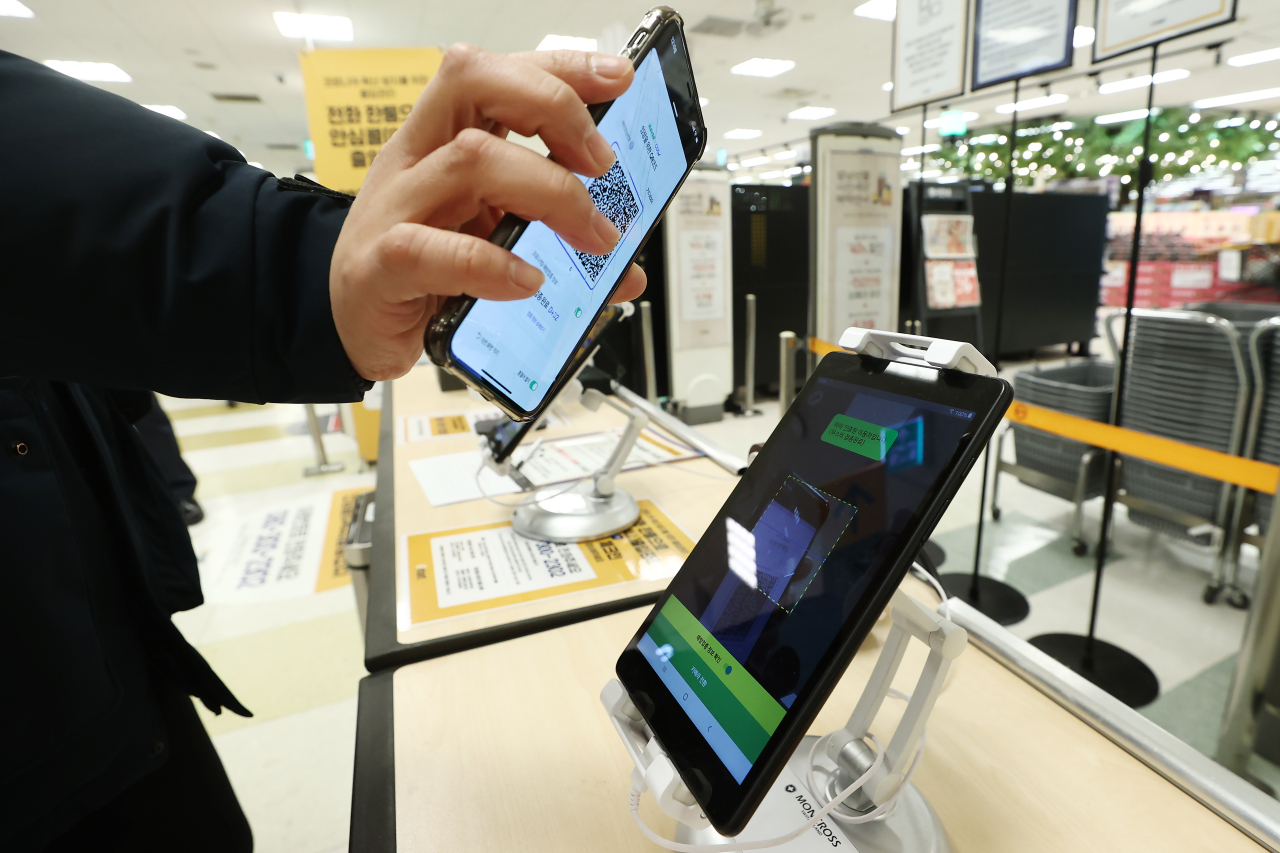The South Korean government said Monday it would appeal a Seoul court’s decision to suspend the vaccine pass mandate requiring children and adolescents to be fully vaccinated or negative in tests to access public places.
The Ministry of Health and Welfare told a news briefing it would incorporate a part of the court’s decision to retract the mandate at lower-risk facilities for adults, while maintaining that the passes for school-age children and teens are necessary to protect them against a looming omicron wave. The youngest eligible age for a vaccine in Korea is 12.
The Seoul administrative court on Friday temporarily blocked the use of vaccine passes at “essential” places like malls and grocery shops for people of all eligible ages. The court also put on hold the vaccine-or-test requirements for minors under 19 years of age from being introduced across all places.
Mandate narrowed“The COVID-19 situation has stabilized considerably since December to allow us to forgo the passes at places with lower risk,” Son Young-rae, a health ministry spokesperson, told a news briefing.
Places where the mandate is revoked include malls, grocery stores, libraries, book cafes, reading rooms, museums, art galleries, movie theaters, cram schools and other tutoring services -- except for those involving lessons where face masks can’t be worn like singing and wind or brass instrument playing.
The mandate remains in effect in the following places: food outlets, nightlife establishments, party venues, massage parlors, karaokes, public bathhouses, casinos, amusement arcades and indoor sport facilities.
Son hinted at the possibility of the pass system being reintroduced at a wider array of places if outbreak escalates once again.
Court battle ahead for kid mandateWhile the pass system for adults is being fine-tuned, the ministry intends to fight to keep the mandate for kids.
The ministry has already appealed to a higher court an earlier move by a Seoul court to pause the mandate at private tutoring institutions and other educational facilities. On the decision, the administrative court in Seoul said extending the passes to places for students raises concerns of possible violations of constitutional rights to education.
“Over the appeals process, which will proceed immediately, the ministry plans to adequately explain to the court why the passes are necessary at these places, and try to have a reasonable decision reached,” said Son of the ministry.
More specifically, he said the ministry will be working on having the court-issued suspension on the mandate at some of the educational facilities removed.
“Although cases among children and teens are falling, the rates feared to rise once omicron takes over,” he said.
“If large numbers of students become infected and in-person learning is no longer feasible, then based on the rates of unvaccinated infections among educational facilities, the passes may need to make a return.”
Why did the court block the policy?The court said based on statistics here kids and adolescents were “at significantly less risk” of hospital admissions or deaths than adults, and questioned whether subjecting them to the mandates could be justified, especially in educational facilities.
The court also said there was insufficient evidence to deny some groups entry to places essential to daily life that aren’t deemed to have high risk of transmission.
The court noted that in places like classrooms and grocery stores, face masks could be worn as opposed to in cafes and restaurants where people can’t be masked.
The suspension is not permanent, lasting only until a judgment on the merits.
How many are vaccinated in Korea?As of the Korea Disease Control and Prevention Agency‘s statistics Sunday, close to 95 percent of people 20 and older are fully vaccinated and 83 percent of people 60 and older are boosted.
Some 79 percent of 16- to 18-year-olds are fully vaccinated, while the rate was lower at around 55 percent for younger teens.
By Kim Arin (
arin@heraldcorp.com)







![[Robert Fouser] Accepting migrants in South Korea](http://res.heraldm.com/phpwas/restmb_idxmake.php?idx=644&simg=/content/image/2024/10/31/20241031050896_0.jpg)
